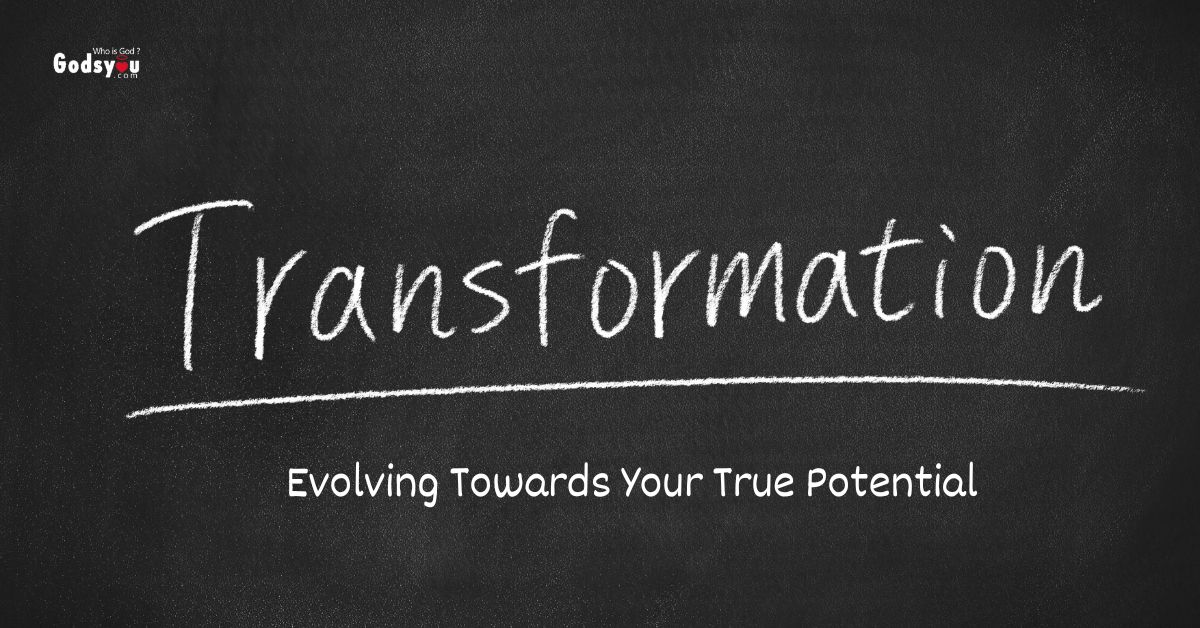transformation, is a concept that holds immense significance in personal and organizational growth. It refers to a profound and fundamental change that occurs at various levels, leading to a shift in perspectives, behaviors, and outcomes. Understanding the concept of transformation is crucial as it allows individuals and organizations to adapt, evolve, and thrive in an ever-changing world.
Key Takeaways
- Transformation is the process of profound and lasting change that affects every aspect of our lives.
- Personal growth requires, as it involves letting go of old patterns and beliefs and embracing new ones.
- Organizational change often requires, as it involves changing the culture, structure, and processes of an organization.
- Transformation is a psychological process that involves moving from one stage to another, often involving discomfort and uncertainty.
- Embracing can lead to many benefits, such as increased creativity, better relationships, and a sense of purpose and fulfillment.
Understanding the concept of transformation
Transformation can be defined as a complete and radical change in form, nature, or character. It goes beyond mere surface-level modifications and delves into the core essence of an individual or organization. There are different types of , including personal, organizational, societal, and technological . Personal involves an individual’s journey of self-discovery, growth, and self-improvement. Organizational , on the other hand, focuses on reshaping the culture, structure, and processes of an organization to achieve better performance and adaptability.
Examples of transformation can be found in everyday life. Consider the journey of a caterpillar transforming into a butterfly. This metamorphosis involves a complete restructuring of its body, from crawling on the ground to flying freely in the sky. Similarly, individuals may undergo personal when they overcome challenges, change their mindset, or adopt new habits that lead to positive changes in their lives.
The importance of transformation in personal growth
Transformation plays a pivotal role in personal growth as it enables individuals to break free from limiting beliefs, expand their horizons, and reach their full potential. By embarking on a journey of self-, individuals can experience profound changes in their mindset, behavior patterns, and overall well-being.
One of the key benefits of personal transformation is increased self-awareness. Through introspection and reflection, individuals gain a deeper understanding of their strengths, weaknesses, values, and aspirations. This self-awareness allows them to make conscious choices aligned with their authentic selves and make positive changes in their lives.
There are countless stories of personal that inspire and motivate others. Take the example of Oprah Winfrey, who overcame a challenging childhood and transformed herself into a successful media mogul and philanthropist. Her journey of self-discovery and personal growth serves as a testament to the power of transformation in shaping one’s destiny.
The role of transformation in organizational change
| Metrics | Description |
| Employee engagement | The level of commitment and involvement of employees in the transformation process. |
| Change readiness | The extent to which employees are prepared and willing to embrace the changes brought about by the transformation. |
| Leadership effectiveness | The ability of leaders to communicate the vision and goals of the transformation and to inspire and motivate employees to achieve them. |
| Organizational culture | The values, beliefs, and behaviors that shape the way work is done in the organization and how employees interact with each other and with customers. |
| Business performance | The impact of the transformation on key business metrics such as revenue, profitability, customer satisfaction, and market share. |
Transformation is not limited to personal growth; it also plays a crucial role in organizational change. In today’s fast-paced and competitive business landscape, organizations must be agile, adaptable, and open to change. allows organizations to reinvent themselves, stay relevant, and thrive in the face of evolving market dynamics.
Organizational involves a comprehensive overhaul of an organization’s structure, processes, culture, and strategies. It often requires leaders to challenge the status quo, embrace innovation, and foster a culture of continuous improvement. By undergoing , organizations can enhance their performance, increase employee engagement, and achieve sustainable growth.
Numerous success stories highlight the benefits of organizational. For instance, IBM transformed itself from a hardware-focused company to a leading provider of software and services. This strategic shift allowed IBM to adapt to changing market demands and remain a dominant player in the technology industry.
The psychology behind transformation
Transformation is not merely an external process; it is deeply rooted in psychology. The way individuals think, feel, and perceive themselves and the world around them significantly influences their ability to undergo.

Mindset plays a crucial role in transformation. A growth mindset, characterized by a belief in one’s ability to learn and grow, is essential for embracing change and seeking personal or organizational . On the other hand, a fixed mindset, which is resistant to change and believes in innate abilities, can hinder progress.
Emotions also play a significant role in . Fear, doubt, and resistance often arise when individuals or organizations face the prospect of change. Understanding and managing these emotions is crucial for navigating through the journey successfully. Developing emotional intelligence and resilience can help individuals and organizations overcome obstacles and embrace.
Furthermore, is closely linked to self-awareness. By becoming more self-aware, individuals can identify their limiting beliefs, patterns, and behaviors that hinder their growth. Self-awareness allows individuals to challenge these limitations and make conscious choices that align with their desired.
The stages of transformation: a closer look
Transformation is a multi-stage process that involves distinct phases, each with its own characteristics and challenges. Understanding these stages can help individuals and organizations navigate through the journey more effectively.
The first stage of transformation is often referred to as the “awakening” stage. It is characterized by a realization that change is necessary and a desire for something different. This stage may be triggered by a significant life event, a personal crisis, or a recognition of unfulfilled potential.
The second stage is the “exploration” stage, where individuals or organizations actively seek new possibilities, gather information, and explore different options. This stage involves self-reflection, research, and experimentation to determine the best path forward.
The third stage is the “commitment” stage, where individuals or organizations make a firm decision to pursue the chosen path of. This stage requires dedication, perseverance, and a willingness to overcome obstacles and setbacks.
The final stage is the “integration” stage, where the changes become ingrained in one’s identity or organizational culture. This stage involves consolidating new habits, behaviors, and mindsets to ensure lasting.
The benefits of embracing transformation
Embracing brings numerous benefits to both personal and professional life. On a personal level, allows individuals to break free from self-imposed limitations, discover their true potential, and live a more fulfilling life. It opens doors to new opportunities, enhances self-confidence, and fosters personal growth and development.
In the professional realm, embracing is essential for staying competitive and relevant in today’s rapidly changing business landscape. Organizations that embrace can adapt to market shifts, innovate, and seize new opportunities. They can foster a culture of continuous improvement, attract top talent, and achieve sustainable growth.
Overcoming resistance to transformation
Resistance to transformation is a common challenge that individuals and organizations face. There are several reasons why people resist change, including fear of the unknown, attachment to familiar routines, and a lack of understanding or trust in the process.
To overcome resistance to, it is crucial to address these underlying concerns and engage individuals or teams in the change process. Communication plays a vital role in overcoming resistance by providing clarity, transparency, and reassurance. Leaders should communicate the vision, purpose, and benefits of the to gain buy-in and support.
Developing a growth mindset is also essential for overcoming resistance to change. A growth mindset allows individuals to view challenges as opportunities for learning and growth rather than insurmountable obstacles. By cultivating a growth mindset, individuals can embrace change, adapt quickly, and navigate through the journey more effectively.
The impact of transformation on relationships
Transformation not only affects individuals but also has a significant impact on relationships. As individuals undergo personal , their relationships with others may evolve and transform as well.
Transformation can strengthen relationships by fostering open communication, empathy, and understanding. As individuals become more self-aware and develop a deeper understanding of themselves, they can better understand and connect with others. This enhanced connection can lead to more meaningful relationships built on trust, respect, and shared values.
However, it is important to note that not all relationships may survive or thrive during the journey. Some relationships may be outgrown or no longer aligned with an individual’s transformed self. It is crucial to navigate these changes with compassion and understanding, allowing space for both personal growth and the evolution of relationships.
The role of mindfulness in transformation
Mindfulness, the practice of being fully present and aware in the present moment, plays a significant role. It allows individuals to cultivate a deeper sense of self-awareness, observe their thoughts and emotions without judgment, and make conscious choices aligned with their desires.
Mindfulness can be a powerful tool for personal and organizational. By practicing mindfulness, individuals can develop greater clarity, focus, and resilience, enabling them to navigate through challenges and setbacks more effectively. Organizations that embrace mindfulness can create a culture of presence, creativity, and innovation, fostering a conducive environment for.
Various mindfulness practices can be supported. Meditation, breathing exercises, journaling, and mindful movement are just a few examples. These practices help individuals cultivate self-awareness, manage stress, and develop a deeper connection with themselves and others.
The connection between transformation and creativity
Transformation and creativity are closely intertwined. When individuals or organizations undergo, they often tap into their creative potential to envision new possibilities and solutions.
Transformation opens up new perspectives, breaks down mental barriers, and encourages individuals to think outside the box. By embracing change and exploring different possibilities, individuals can unleash their creativity and find innovative solutions to challenges.
Embracing creativity brings numerous benefits. It fosters a culture of innovation, encourages collaboration and diversity of thought, and enhances problem-solving skills. Creativity also brings joy, fulfillment, and a sense of purpose to the journey.
Numerous examples illustrate how creativity can be harnessed in personal and organizational. For instance, companies like Apple have embraced creativity as a core value, leading to groundbreaking products that have transformed entire industries. Similarly, individuals who embrace their creative potential often find new paths in life that align with their passions and purpose.
The future of transformation: trends and predictions
The concept of transformation is continuously evolving, driven by emerging trends and societal shifts. As we look to the future, several trends and predictions can be identified.

One emerging trend is the integration of technology in personal and organizational. Advancements in artificial intelligence, virtual reality, and augmented reality are likely to play a significant role in enhancing the journey. These technologies can provide personalized experiences, immersive learning environments, and data-driven insights that support personal and organizational growth.
Another trend is the increasing focus on holistic. Rather than focusing solely on individual or organizational aspects, holistic recognizes the interconnectedness of various dimensions of life. It emphasizes the integration of physical, mental, emotional, and spiritual well-being in the journey.
Staying adaptable and open to change is crucial in the face of these emerging trends. The ability to embrace new technologies, embrace holistic approaches, and continuously learn and grow will be essential for individuals and organizations to thrive in the future.
In conclusion, understanding and embracing transformation is vital for personal and organizational growth. allows individuals to break free from limitations, discover their true potential, and live a more fulfilling life. It enables organizations to adapt, innovate, and achieve sustainable growth in a rapidly changing world.
By understanding the psychology behind it, navigating through its stages, embracing change, and cultivating mindfulness and creativity, individuals and organizations can embark on a transformative journey that leads to profound personal and professional growth.
As we look to the future, it is crucial to stay adaptable, open-minded, and willing to embrace change. The world is constantly evolving and will continue to play a pivotal role in shaping our lives and organizations. By embracing change, we can create a better future for ourselves and those around us.
FAQs
What is transformation?
Transformation refers to a process of change or conversion from one state, form, or condition to another.
What are the types of transformation?
There are various types of transformation, including digital, organizational, cultural, and personal.
What is digital transformation?
Digital transformation is the integration of digital technology into all areas of a business, resulting in fundamental changes to how businesses operate and deliver value to customers.
What is organizational transformation?
Organizational transformation is a process of changing the structure, culture, and processes of an organization to improve its performance and achieve its goals.
What is cultural transformation?
Cultural transformation is a process of changing the values, beliefs, and behaviors of an organization to create a more positive and productive culture.
What is personal transformation?
Personal transformation is a process of self-improvement and growth, involving changes in mindset, behavior, and habits to achieve personal goals and improve overall well-being.
Why is transformation important?
Transformation is important because it enables individuals and organizations to adapt to changing circumstances, improve performance, and achieve their goals. It also helps to drive innovation and growth.
To Read More About Transformation
To Read About Wise quotes










